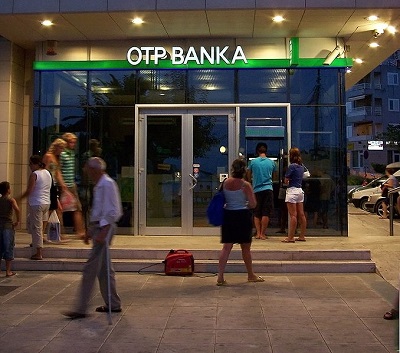Flous mobile commerce service to be used by UN agency in Togo, Africa
Etisalat, a leading telecommunications organization in the Middle East, Asia, and Africa, has announced that its mobile commerce service, called Flous, has been adopted by the United Nations’ Population Fund Agency. The agency will be using Flous to transfer salaries of more than 6,000 of its agents working in Togo. The mobile commerce platform has managed to acquire a significant amount of praise from those that have used it in many parts of the world and the platform is expected to meet the needs of the UN agency.
Service will allow agents to access their funds from a mobile device and pay for products and bills online
The Population Fund Agency in Togo is the first United Nations organization to adopt the service developed by Etisalat. The service will also those with an Etisalat account to access their funds through their mobile device. They will be able to use their smartphones and tablets to purchase products online with relative ease. Mobile shopping has become quite popular in Africa, especially as a growing number of people gain access to smartphones and similar devices.
Mobile shopping continues to grow due to its convenience
 Mobile shopping represents a certain degree of convenience for people living in many parts of the world. Those with limited personal time can benefit from mobile shopping, purchasing the products they need during long commutes. Mobile shopping can also exist as a way to get away from the crowds that are typically found at physical stores. These crowds can be a cause for anxiety among some people and mobile shopping could be an appropriate escape from such situations.
Mobile shopping represents a certain degree of convenience for people living in many parts of the world. Those with limited personal time can benefit from mobile shopping, purchasing the products they need during long commutes. Mobile shopping can also exist as a way to get away from the crowds that are typically found at physical stores. These crowds can be a cause for anxiety among some people and mobile shopping could be an appropriate escape from such situations.
Lack of mobile infrastructure may hinder the growth of mobile services
Some infrastructure challenges may prevent the Flous platform from finding initial success in Togo. Mobile commerce is still quite new and many countries have not yet taken the steps necessary to accommodate mobile consumers. As such, relatively few retailers, utilities, and other businesses in Togo accept mobile payments currently, but this may change as mobile commerce continues to grow in popularity.
New platform formed through partnership between OTP Bank, MasterCard, and Cellum
OTP Bank has begun to roll out its new mobile payment service, called OTPay. The new service is being launched with the aid of Cellum and MasterCard. The companies announced their partnership in February of this year and have been working together to develop services that would be well received in the mobile commerce space. OTPay is developed by Cellum and adheres to standards devised by MasterCard. OTP Bank is responsible for the financial aspects of the service.
Service may be quite successful in Hungary, where mobile commerce infrastructure already exists
The service is expected to be particularly successful in Hungary, where it is being launched initially. The service will act as a sort of mobile wallet, allowing users to store a wide variety of financial information on a digital platform. The wallet can then be used to make purchases at physical stores and online. Stores, restaurants, and other establishments that are displaying the OTPay logo will accept mobile payments made from the service. Users will also be able to scan QR codes to conduct a purchase if they so desire.
Service makes use of cloud technology in order to secure transactions
 OTPay makes use of cloud payment technology that is meant to secure the transactions that it facilitates. This means that merchants will not have direct access to a consumer’s financial information, but will still be able to receive payment from the consumer. The service also makes use of Cellum’s security technology, which is often used by banks and other financial institutions that adhere to very strict security standards.
OTPay makes use of cloud payment technology that is meant to secure the transactions that it facilitates. This means that merchants will not have direct access to a consumer’s financial information, but will still be able to receive payment from the consumer. The service also makes use of Cellum’s security technology, which is often used by banks and other financial institutions that adhere to very strict security standards.
Partnerships are becoming common in the mobile commerce space
Partnerships like that between OTP Bank, MasterCard, and Cellum are becoming quite common in the mobile space. The mobile commerce market is saturated and it is becoming more difficult for companies to stand out from amongst their competition. Partnerships can make it easier for these companies to reach consumers with their mobile commerce products. As more partnerships form in the mobile space, consumers stand to benefit from the products and services that these partnerships produce.
 Mobile shopping represents a certain degree of convenience for people living in many parts of the world. Those with limited personal time can benefit from mobile shopping, purchasing the products they need during long commutes. Mobile shopping can also exist as a way to get away from the crowds that are typically found at physical stores. These crowds can be a cause for anxiety among some people and mobile shopping could be an appropriate escape from such situations.
Mobile shopping represents a certain degree of convenience for people living in many parts of the world. Those with limited personal time can benefit from mobile shopping, purchasing the products they need during long commutes. Mobile shopping can also exist as a way to get away from the crowds that are typically found at physical stores. These crowds can be a cause for anxiety among some people and mobile shopping could be an appropriate escape from such situations.
 OTPay makes use of cloud payment technology that is meant to secure the transactions that it facilitates. This means that merchants will not have direct access to a consumer’s financial information, but will still be able to receive payment from the consumer. The service also makes use of Cellum’s security technology, which is often used by banks and other financial institutions that adhere to very strict security standards.
OTPay makes use of cloud payment technology that is meant to secure the transactions that it facilitates. This means that merchants will not have direct access to a consumer’s financial information, but will still be able to receive payment from the consumer. The service also makes use of Cellum’s security technology, which is often used by banks and other financial institutions that adhere to very strict security standards.